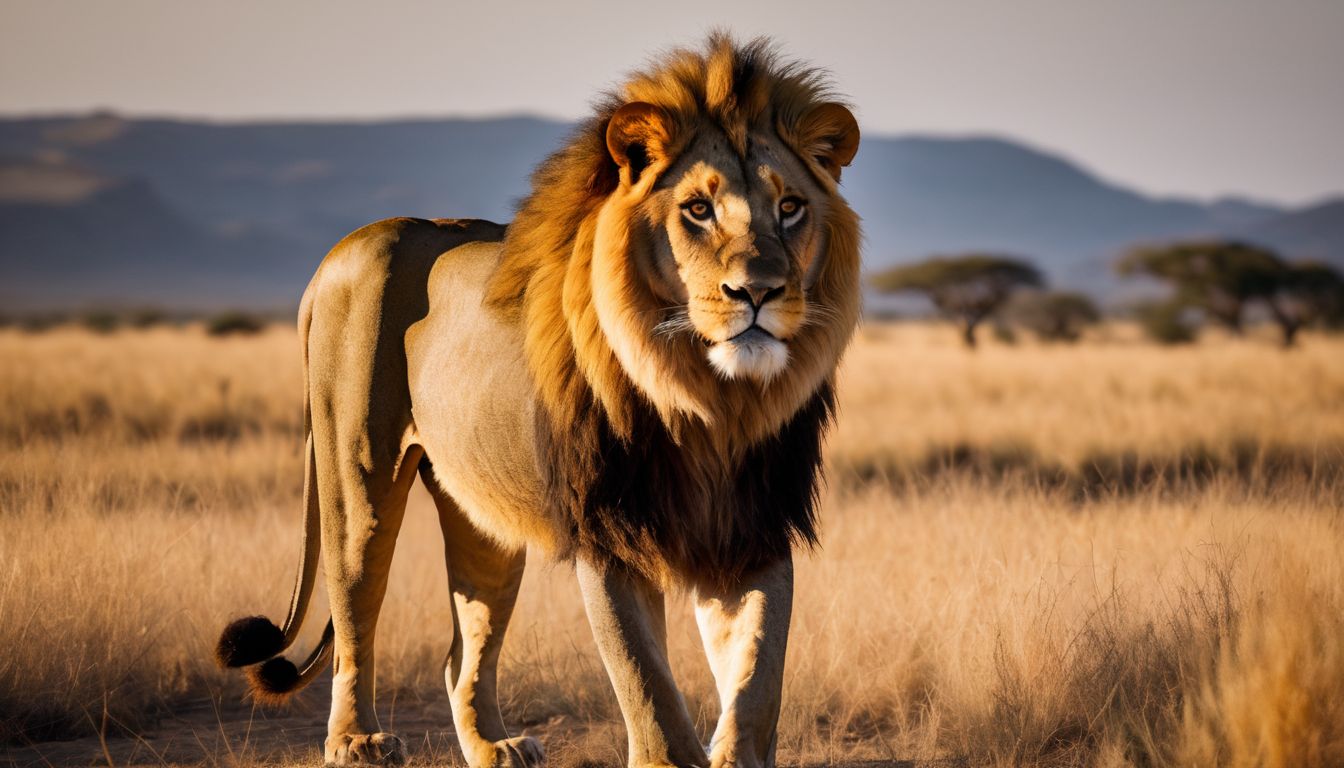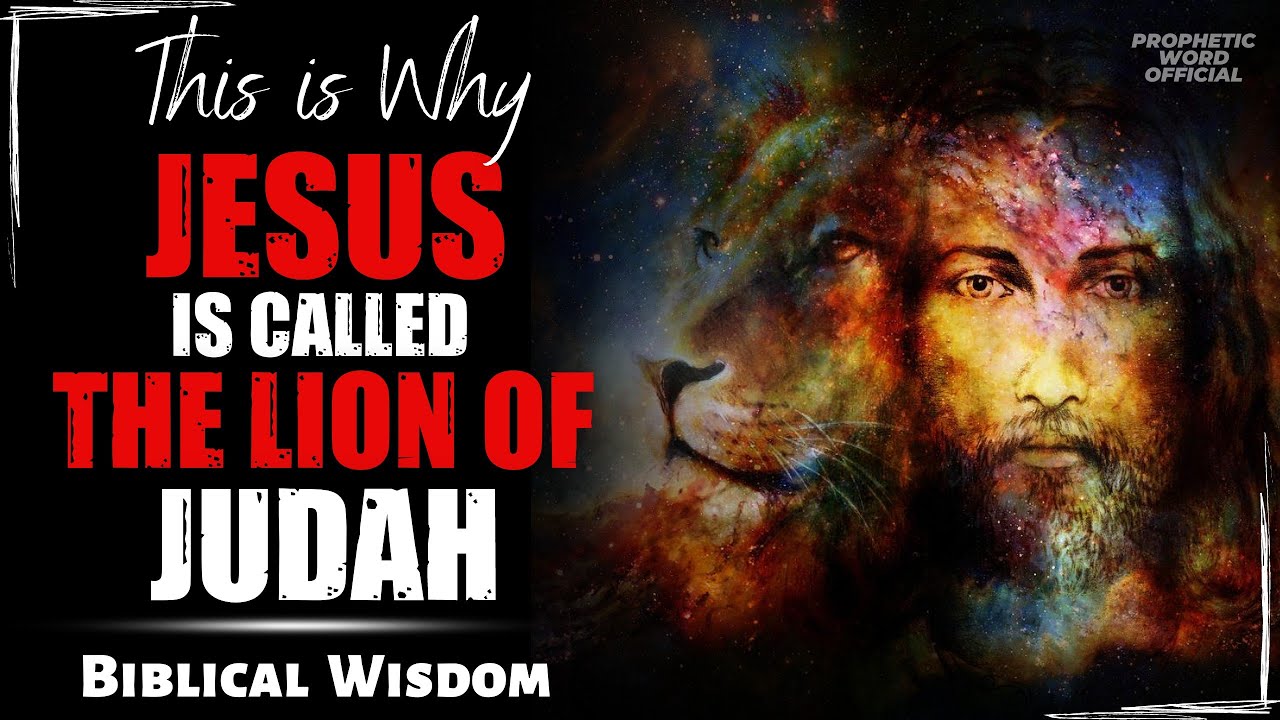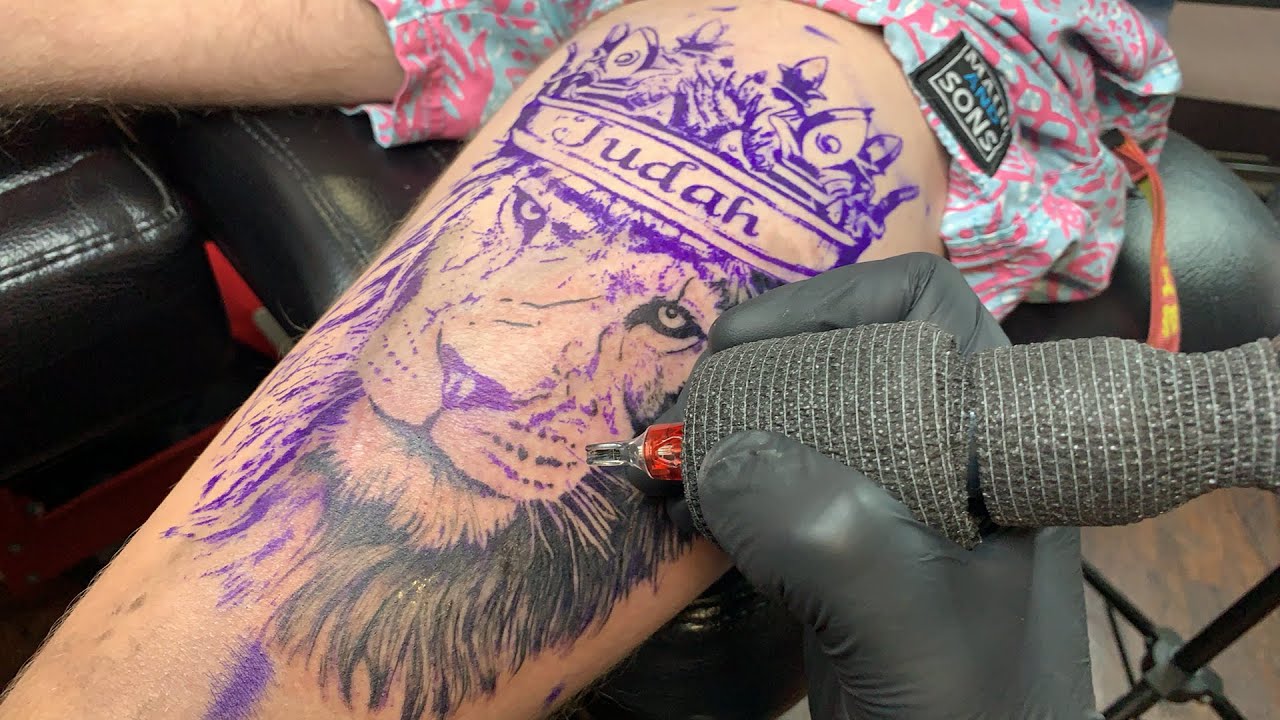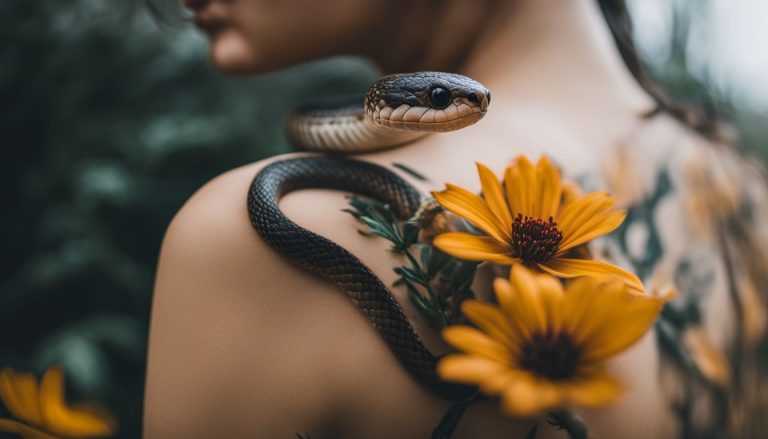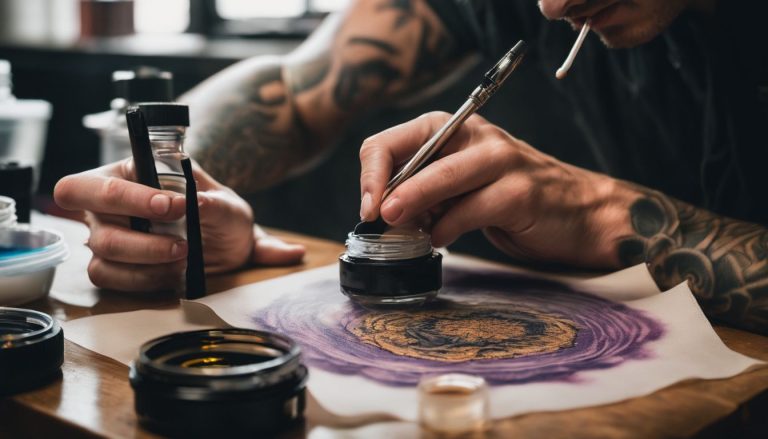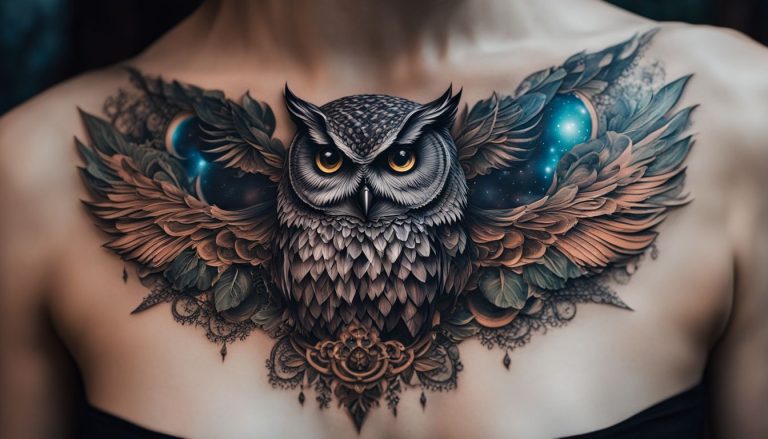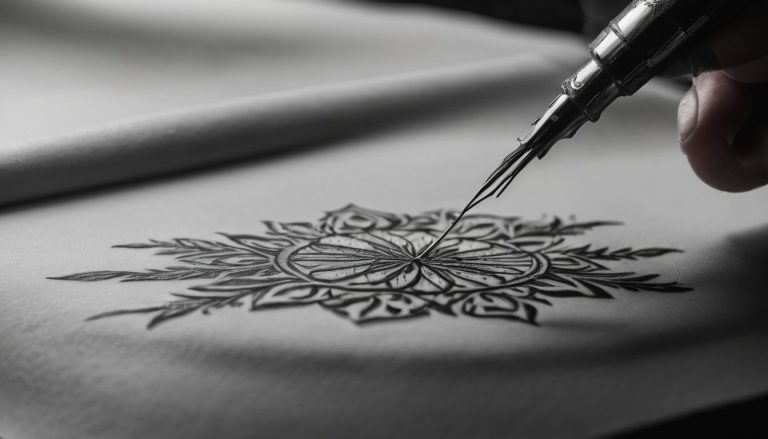The Symbolism and Meaning Behind the Lion of Judah Tattoo
Create your own unique tattoos and art for your home
Choosing a tattoo can be tough, especially when you want it to have deep meaning. The Lion of Judah is not just any design; it’s loaded with history and symbolism. Our guide will unlock the powerful messages behind this iconic ink.
Dive in and discover how a Lion of Judah tattoo could embody your own strength and spirit!
Key Takeaways
- The Lion of Judah tattoo represents strength, courage, and the power of God, with roots in both Rastafarian beliefs and ancient Judeo-Christian symbolism.
- Various designs include a lion wearing a crown for royalty and authority, a tribal lion connecting to African heritage, a roaring lion for power and dominance, and the combination of the lion with a lamb depicting peace alongside strength.
- Placement options such as the upper arm or back offer visibility for larger tattoos while smaller designs can be placed on less conspicuous areas like wrists; size and location should reflect personal meaning.
- Aftercare is crucial for maintaining the quality of your Lion of Judah tattoo; this includes regular cleaning, moisturizing, protecting from sunlight, and scheduling touch-up appointments when needed.
- The Lion of Judah iconography has cultural significance that extends beyond aesthetics; it’s intertwined with spiritual depth and historical resonance valuable to wearers’ identities.
What is the Lion of Judah Tattoo?
The Lion of Judah tattoo is a symbol of strength, courage, and conviction, representing the power of God. It holds significant importance in the Rastafarian belief system.
Symbol of strength, courage, and conviction
In the realm of tattoos, a Lion of Judah design sends a message that resonates with power and fearlessness. Chosen by those who wish to embody its attributes, this symbol represents an unwavering spirit and an unshakable resolve.
It’s more than mere ink on skin; it’s a declaration of personal empowerment and inner strength.
By choosing this motif, individuals affirm their determination and face life’s challenges head-on. They signal courage in adversity and conviction in their beliefs. Whether inspired by Rastafarian roots or Biblical references, wearers align themselves with the noble qualities ascribed to the lion—bravery, authority, and majesty—all held together by relentless faith.
Represents the power of God
The symbolism of the Lion of Judah tattoo is rich and deeply rooted in religious beliefs. The representation of this majestic beast embodies strength, courage, and conviction, all qualities that are significant in illustrating the power of God.
With its roots tracing back to the ancient Israelite tribe of Judah and its association with Emperor Haile Selassie I in the Rastafarian movement, the lion symbolizes divine authority and protection as well as serving as a reminder of God’s unwavering strength throughout history.
Additionally, this powerful emblem conveys spiritual significance across various cultures and holds immense reverence for those seeking to honor their faith through body art.
Important in Rastafarian belief system
The Lion of Judah holds immense significance in the Rastafarian belief system, where it is revered as a representation of strength and kingship. Haile Selassie I, considered a divine figure within Rastafarianism, is symbolized by the Lion of Judah, embodying the ideals of power and divinity.
This symbolism aligns with the central tenets of Rastafari, emphasizing liberation, African sovereignty, and resistance against oppression. Furthermore, the lion’s association with Emperor Haile Selassie I connects directly to biblical references tracing his lineage to the Tribe of Judah – adding profound religious and historical meaning to this powerful image.
Incorporating the Lion of Judah tattoo into one’s body art not only reflects personal beliefs but also serves as a visible expression of faith within the Rastafarian community. The tattoo underscores an unwavering commitment to spiritual principles while honoring cultural heritage and tradition.
The Meaning and Symbolism Behind the Lion of Judah Tattoo
The Lion of Judah tattoo symbolizes strength, nobility, and African sovereignty. It also represents the protection and guidance of God in Rastafarian beliefs.
Strength and nobility
The Lion of Judah tattoo symbolizes strength, bravery, and nobility. It embodies the powerful and regal characteristics often associated with lions in various cultures. The image of a crowned lion represents not only physical strength but also an inherent dignity and majesty, making it a compelling symbol for those seeking to embody these traits through their body art.
In Rastafarian belief, the Lion of Judah is seen as a representation of power and kingship. This association with royalty further emphasizes the noble qualities attributed to the lion.
With its historical significance and deep-rooted symbolism, this tattoo choice conveys a sense of honor and authority while also reflecting personal inner strength.
African sovereignty
Representing the historical link to ancient African traditions and the continent’s sovereignty, the Lion of Judah tattoo holds significant cultural and religious significance. Haile Selassie, often referred to as “Conquering Lion of the Tribe of Judah,” played a crucial role in Ethiopian history.
As an African leader recognized for his resistance against colonialism, depicting the Lion of Judah in tattoo art represents a powerful symbol of African pride and independence. The imagery serves as a reminder of Africa’s rich heritage and resilience, making it more than just a mere tattoo but a statement deeply rooted in historical significance.
Protection and guidance of God
The Lion of Judah tattoo symbolizes the divine protection and guidance of God. In Rastafarian belief, it represents the strength and sovereignty of African people under the protection of a higher power.
The imagery of the crowned lion also relates to Emperor Haile Selassie I in the Rastafari movement, signifying his role as a spiritual leader with divine connection.
Rooted in ancient traditions, this symbol embodies the biblical significance found in Judeo-Christian symbolism as well as within cultural contexts. It conveys a powerful message of courage and resilience while emphasizing the divine shelter provided by God.
Different Designs and Styles of Lion of Judah Tattoos
Lion of Judah tattoos come in various designs and styles such as the lion with a crown, tribal lion, roaring lion, and the combination of Lion of Judah and lamb. To learn more about these unique designs and styles, keep reading!
Lion with crown
One popular design of the Lion of Judah tattoo is the regal portrayal of a lion wearing a crown. This symbolizes royalty, power, and authority. The crowned lion serves as a representation of strength and majesty, reflecting the significance of its biblical and historical roots.
It also signifies triumph over adversity, connecting to the courage and conviction associated with this revered symbol.
Incorporating the crown into the lion’s depiction emphasizes its status as a king among creatures, linking it to themes of leadership and sovereignty. The addition of a crown amplifies the symbolism tied to this iconic image, making it an ideal choice for those seeking to convey notions of nobility and prowess in their Lion of Judah tattoo.
Tribal lion
The lion with crown represents majesty and authority, while the tribal lion draws from rich cultural heritage. Tribal lion tattoos often feature intricate designs that pay homage to African traditions and symbolism.
These tattoos showcase the connection between the wearer and their African roots, embodying strength, pride, and heritage. The use of geometric patterns, tribal motifs, and bold lines enhance the visual impact of these designs, making them popular choices for individuals seeking a tattoo that reflects their cultural identity.
With its deep ties to African sovereignty and historical significance, the tribal lion tattoo serves as a powerful symbol of strength and resilience within communities that deeply value tradition and heritage.
Roaring lion
The roaring lion in the Lion of Judah tattoo symbolizes power, authority, and dominance. The image of a lion roaring signifies strength, fearlessness, and a commanding presence. It also represents courage and resilience in the face of challenges.
In Rastafarian belief system, the roaring lion is a powerful symbol that embodies the essence of African sovereignty and spiritual guidance. This design often captures the attention with its fierce expression and dynamic posture, making it a popular choice for those seeking to convey a strong message through their tattoos.
Moving on to “Lion of Judah and lamb”..
Lion of Judah and lamb
Transitioning from the fierce image of the roaring lion, the Lion of Judah tattoo can also be depicted alongside a lamb to symbolize peace and humility. The combination captures both strength and gentleness within one design.
In Judeo-Christian symbolism, the pairing represents Jesus Christ as the powerful yet gentle Savior, offering protection and guidance while exemplifying innocence and sacrifice.
The symbology extends to Haile Selassie’s embodiment of strength as the Lion of Judah and his call for peaceful coexistence among all people. This juxtaposition signifies a balance between power and compassion that resonates deeply with those seeking spiritual significance in their tattoos.
Placing and Sizing of Lion of Judah Tattoos
Consider popular placement options for your Lion of Judah tattoo, such as the upper arm, back, or chest. And be sure to carefully consider size and visibility when choosing the right design for you.
Popular placement options
Popular placement options for the Lion of Judah tattoo include the upper arm, forearm, shoulder, chest, and back. These areas allow for varying sizes and styles of the design while offering visibility if desired.
The upper arm is a popular choice for its prominent display, while the forearm provides a visible yet more discrete option. Many individuals also opt for a larger design spanning across the shoulder or chest to make a bold statement.
Back placement offers ample space for intricate and detailed designs.
Consider size and visibility
When choosing the placement for your Lion of Judah tattoo, it’s essential to consider its size and visibility. A larger design may work well on the upper arm, back, or chest, while smaller tattoos are suitable for wrists, ankles, or fingers.
The level of visibility you desire also plays a crucial role; if you prefer a more discreet look, consider placing the tattoo in an area that can be easily covered by clothing. Remember to ensure that your chosen placement allows for optimal viewing and appreciation of the symbolism behind your Lion of Judah tattoo.
Taking Care of Your Lion of Judah Tattoo
After getting your Lion of Judah tattoo, it’s important to take proper care of it. This includes keeping the area clean and following the aftercare instructions given by your tattoo artist.
Regular touch-up appointments may also be necessary to maintain the beauty and vibrancy of your tattoo.
Proper cleaning and aftercare
After getting a Lion of Judah tattoo, it is crucial to follow proper cleaning and aftercare to ensure its longevity. Gently wash the tattooed area with mild soap and water, then pat it dry with a clean towel.
Apply a thin layer of unscented moisturizer or specialized tattoo aftercare product to keep the skin hydrated. Avoid picking at scabs or scratching the tattooed area to prevent infection and preserve the vibrancy of the design.
Additionally, protect your tattoo from prolonged sun exposure by applying sunscreen as it heals.
For best results, schedule touch-up appointments as needed to maintain the integrity of your Lion of Judah tattoo over time. This involves consulting with a professional tattoo artist who can assess any fading or imperfections in the design and provide necessary touch-ups using high-quality ink and precise techniques.
Touch-up appointments
Proper cleaning and aftercare are essential for maintaining the vibrancy and longevity of your Lion of Judah tattoo. However, over time, tattoos may fade or lose their sharpness due to exposure to sunlight and natural aging of the skin.
When this occurs, scheduling touch-up appointments with a skilled tattoo artist can help refresh the details and colors of your Lion of Judah tattoo, ensuring that its symbolism and meaning remain prominent.
These touch-up sessions also provide an opportunity to address any minor imperfections or fading that may have occurred since the initial tattoo application.
To maintain the striking presence of your Lion of Judah tattoo, periodic touch-up appointments enable you to preserve its significance as a symbol of strength, courage, protection, and spiritual conviction.
Conclusion
In conclusion, the Lion of Judah tattoo holds deep significance in various cultures and belief systems. Its symbolism of strength, courage, and protection resonates with those seeking to express their faith or heritage through body art.
Whether depicted as a roaring lion or adorned with a crown, this powerful symbol continues to inspire individuals in their spiritual journey. Embracing the rich history and meaning behind the Lion of Judah tattoo allows wearers to carry its timeless message of resilience and conviction with them always.
FAQs
1. What does the Lion of Judah tattoo symbolize?
The Lion of Judah tattoo stands for strength, courage, and protection. It also carries a deep religious meaning from Judeo-Christian symbolism.
2. Can the lion tattoo represent personal conviction?
Yes, many people get a lion tattoo to show their strong convictions and commitment to their beliefs or life philosophy.
3. Is there more than one significance to a Lion of Judah tattoo?
Absolutely! The lion is not just about bravery; it can reflect African sovereignty, be connected with Rastafarian belief, or even celebrate a close friendship as best friend tattoos.
4. Does the lion in these tattoos have cultural importance?
For sure! Beyond its spiritual meaning, the Lion of Judah has significant cultural relevance, often tied to historical and religious iconography.
5. Are lion tattoos considered spiritual or religious?
Yes, they are frequently seen as both spiritual and religious tattoos due to their rich connection with various cultures’ lore and heritage.

